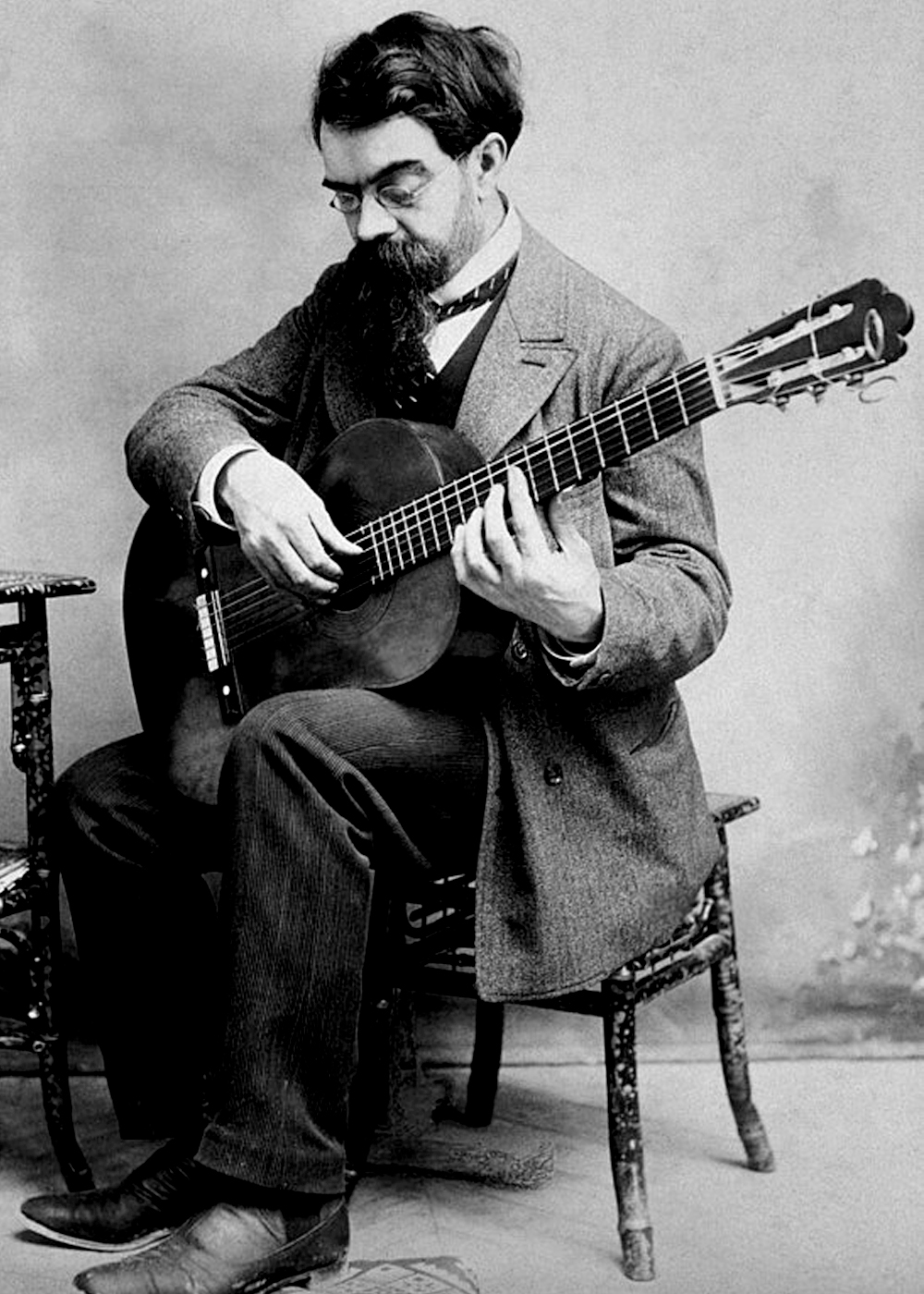BACK TO TOP
Francisco Tárrega
Capricho árabe
Francisco Tárrega, often acclaimed as the “father of classical guitar,” was a Spanish composer and virtuoso guitarist of the Romantic era. Born in Villarreal, Spain, in 1852, Tárrega significantly shaped the repertoire and technique of classical guitar, blending the traditions of Spanish folk music with the expression of the Romanticism. His compositions are known for their lyrical melodies, elaborated harmonies, and delicate use of the guitar’s tonal capacities. Among his works, Capricho Árabe stands out as one of his most beloved pieces.
Capricho Árabe reflects the Arabic influence on Spanish culture. Composed in 1892, the piece is a brilliant fusion of Andalusian and Romantic elements, evoking in us images of distant lands and ancient histories. Its melodies and flowing arpeggios are filled with a sense of longing and exoticism, capturing the listener’s imagination. The work’s expressive qualities and technical challenges have made it one of the favorites among guitarists worldwide.
Although Capricho Árabe was originally written for the guitar, its musical qualities make it well-suited for playing it on the cello. The cello’s rich, resonant tone brings out the lyrical melodies of the piece, adding a new layer of expression and warmth. The instrument’s wide dynamic range allows for greater expressiveness, while its capacity for sustained notes and seamless legato playing introduces a distinct texture to the work’s captivating themes. Moreover, the cello’s ability to emulate the human voice introduces another level of intimacy and drama, making Capricho Árabe a fascinating choice for cellists looking to explore Tárrega’s sound world.
Date:
January 21, 2025




